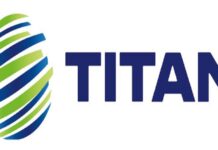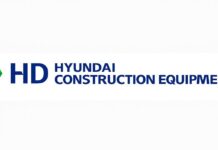Starting a heavy equipment rental business is a big undertaking but can be massively rewarding. Whether you have experience operating bulldozers, backhoes, and the like or just looking to start a new chapter professionally, owning a heavy equipment rental operation allows you to be your own boss while filling an essential need in your local community.
However, before you sink your savings into acquiring a fleet of machines, it’s critical to comprehend what’s involved in getting a rental business off the ground. In this post, we’ll walk you through the key steps to starting a heavy equipment rental business, from writing a foolproof business plan to acquiring your initial equipment and establishing relationships with contractors.
By the end, you’ll have a solid game plan for launching your venture and knowing what to expect in those crucial early months. Let’s get started!
How to Build a Successful Heavy Equipment Rental Business
Renting out heavy equipment to construction companies, contractors, and other businesses is lucrative. Even though you’ll need a large sum of money to acquire these products and services, the reward can be substantial. However, it’s a highly competitive landscape, so you must do your homework before jumping in. Apart from acquiring licenses and choosing the right insurance, below are some basics to get you started.
Create a Business Plan
No matter how big or small your heavy equipment rental business will be, having a solid plan is essential. Your business plan should outline your target market, expected expenses, and any goals you have in the future. It will be your guide, especially if you hit a tight spot, such as a market downturn or unexpected repair costs.
Your business plan must include the following:
- Your company’s objectives and missions.
- Your sales and marketing strategy.
- Will you be focusing on a local area or have plans to expand?
- What will make you stand out from other equipment rental businesses?
You have to consider many other factors that you will have to add to your business plan, such as where you’ll get your funds and the kind of inventory you want to acquire and offer first. Remember, not all equipment trends are the same. Therefore, you must determine the gap and know how to fill it.
Conduct Market Research
Once you have your business plan, it’s time to get into the nitty-gritty. Market research is critical when starting a heavy equipment rental business, as it will help you understand the current market trends and what your potential customers are looking for. Since heavy equipment will sometimes depend on seasonal and regional demands, you’ll need to learn all aspects of your market.
Tips for conducting market research:
- Identify the size of the construction equipment rental market in your area.
- Analyze the current demand for equipment rentals and predict future trends.
- Segment your target market based on location, equipment needs, and customer type.
- Survey potential clients and determine their needs and preferences.
- Gather data regarding the strengths and weaknesses of your competition.
You can gain valuable insights that affect your marketing strategies and how you execute them. Overall, market research will help you make solid business decisions and increase your chances of success.
Know the Types of Equipment You Want to Acquire
By now, you may already have decided on the types of equipment you plan on renting out. Looking for manufacturing companies that deliver consistent outcomes is fundamental. At the same time, assess the prices and find the best companies to provide quality results without spending too much money.
One factor you should consider is determining an equipment’s usage level and maintenance costs. Of course, you shouldn’t purchase equipment that will be used once a year. However, you also don’t want equipment that will be overworked and will need a lot of, repairs, servicing, and maintenance.
Some of the most common heavy equipment would include:
- Excavators
- Bulldozers
- Backhoes
- Loaders
You can start from these common options and expand as your business grows. The right balance between being cost-effective and having equipment that you can maximize can make a lot of difference. Consult with contractors and construction companies in your area to better understand other types of equipment they usually need for their projects.
Developing a Marketing and Sales Strategy Based on Your Research
Marketing and sales strategy in the heavy equipment rental business differs from other industries. However, establishing an online presence is a must. Some social media platforms you can use are Facebook and LinkedIn, both of which are excellent tools for connecting with contractors and construction companies in a more casual manner.
You should also create a website and ensure it’s SEO-optimized to make it easier for potential customers to find your business. Use keywords and relevant terms so that you appear at the top of their search results. To complement your online marketing efforts, you can utilize traditional marketing methods like truck decals, flyers, and business cards, as well as attending trade shows or conferences where construction professionals gather.
Your business vehicles and trucks should also have big truck decals with your logo and tagline because they will serve as moving advertisements. Leveraging online and traditional marketing techniques will help you spread the message about your brand far and wide.
Building Relationships with Contractors
Most of your customers will be contractors, engineers, and construction companies. Therefore, building and maintaining strong relationships with them is important for your business’s success. When you’re just starting, take time to make personal connections with potential clients. Attend local events and don’t hesitate to connect with contractors in your area.
You may also join chapters of associations, such as the Association of General Contractors (AGC) and the American Subcontractors Association (ASA). These are filled with networking opportunities, allowing you to meet more people from the construction industry. Joining chapters in your state or region is imperative since these associations are highly localized.
Start Your Heavy Equipment Rental Business Today
The list above will give you a glimpse of what you must do as you form your heavy equipment rental business. Setting up a business is not easy, but it’s worth it. Conduct proper research and planning, build relationships with potential customers, and establish a strong online presence. You can effectively start and grow your heavy equipment rental business with hard work, determination, and the right strategies.



























